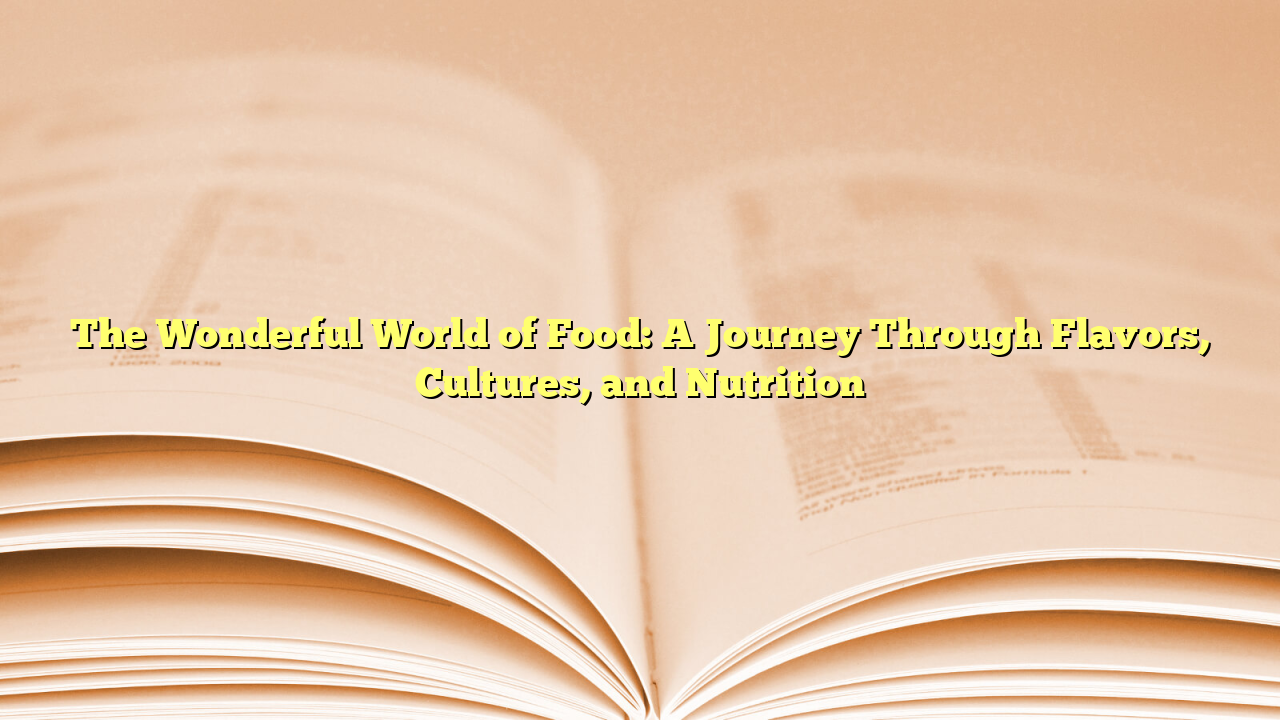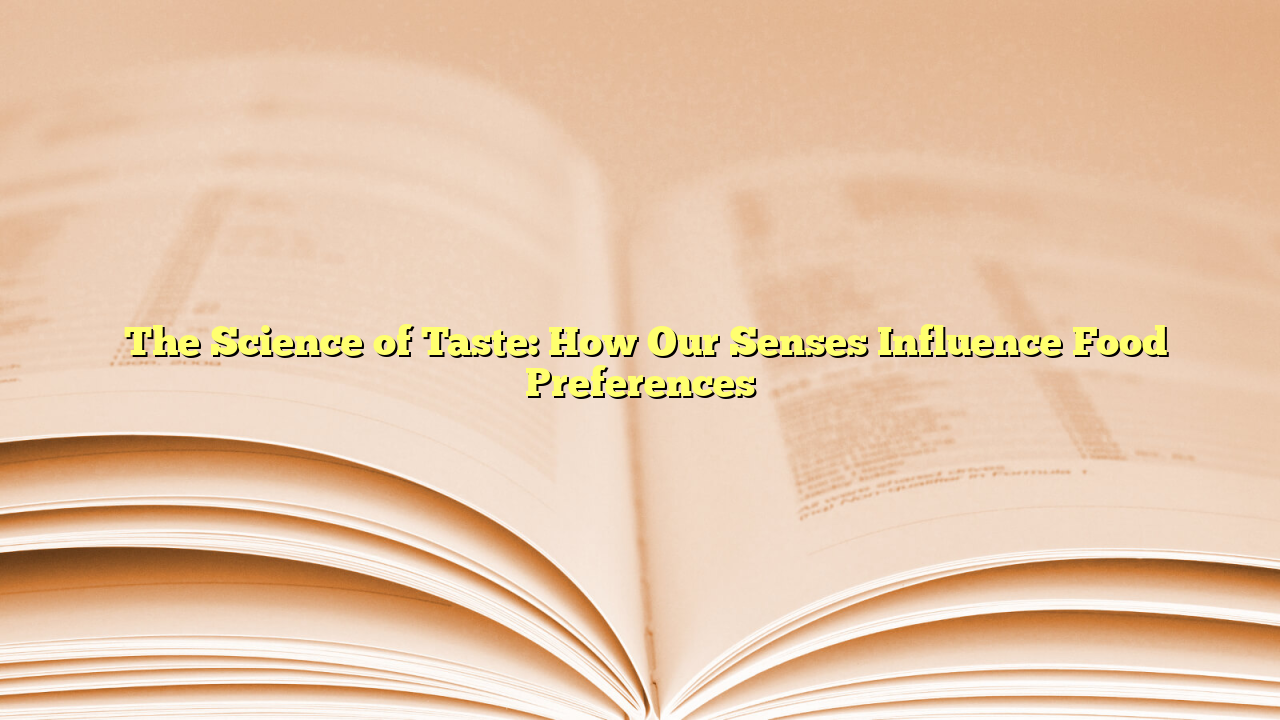Food is one of the most essential elements in human life. It nourishes our bodies, fuels our
energy, and connects us to cultures and traditions across the world. With such a broad
variety of ingredients, methods of preparation, and cultural influences, food is an
ever-evolving aspect of life. From simple, everyday meals to intricate culinary masterpieces,
food is central to our social lives, our health, and our history. In this article, we will explore
the significance of food in different cultures, the role it plays in nutrition, and how it shapes
our social and emotional lives.
The Cultural Significance of Food
One of the most fascinating aspects of food is its ability to tell stories. Each dish has a
history, influenced by geography, climate, and cultural practices. yokubet , preparation
methods, and even the way food is served often reflect centuries-old traditions passed down
through generations.
For instance, in Italy, pasta is more than just a staple; it’s a symbol of national pride and
regional identity. Different regions of Italy are known for their unique pasta shapes and
sauces, many of which have been perfected over hundreds of years. The delicate art of
making fresh pasta, like in the Emilia-Romagna region, requires years of practice and a deep
understanding of texture and flavor.
Similarly, Japanese cuisine is renowned for its precision, balance, and respect for
seasonality. Sushi, one of Japan’s most famous dishes, epitomizes the country’s reverence
for fresh, seasonal ingredients and the simplicity of preparation. The meticulous attention to
detail in sushi-making reflects Japan’s cultural values of mindfulness, respect, and discipline.
In other parts of the world, such as India and Mexico, food plays an equally significant role in
the social and cultural fabric. Indian cuisine, with its diverse range of spices, flavors, and
textures, mirrors the country’s rich cultural tapestry. The combination of sweet, sour, salty,
and bitter in Indian dishes not only provides a burst of flavor but also symbolizes the
country’s philosophical approach to life, emphasizing balance and harmony.
Similarly, Mexican cuisine is a reflection of the country’s rich indigenous heritage combined
with Spanish influences. Dishes like tacos, enchiladas, and tamales are integral to Mexican
identity and offer a window into its history, blending ancient Mesoamerican ingredients with
European imports.
The Role of Food in Nutrition
Beyond its cultural significance, food is also essential to human health and well-being.
Nutrition is the science of how food affects the body, and it’s crucial for maintaining a
balanced and healthy life. A well-balanced diet provides the body with the necessary
nutrients it needs to function properly, including proteins, fats, carbohydrates, vitamins, and
minerals.
Proteins are the building blocks of the body, helping to repair and build tissues, and play a
vital role in immune function. Sources of protein include meat, fish, eggs, and plant-based
options like beans, lentils, and tofu.
Fats are essential for energy storage and the absorption of fat-soluble vitamins. While
consuming healthy fats, such as those found in avocados, nuts, and olive oil, is important for
heart health, it’s equally necessary to limit unhealthy fats like trans fats and saturated fats,
which can contribute to heart disease.
Carbohydrates are the body’s primary source of energy, providing the fuel needed for
day-to-day activities. Complex carbohydrates, such as those found in whole grains,
vegetables, and fruits, are particularly beneficial because they provide long-lasting energy
and are rich in fiber, which aids in digestion and helps prevent chronic diseases.
Vitamins and minerals are micronutrients that support various bodily functions. For example,
vitamin C, found in citrus fruits, is essential for immune function, while calcium, found in dairy
products, is necessary for strong bones and teeth.
Despite the availability of diverse food choices, there is a growing concern around unhealthy
eating habits, particularly in modern, fast-paced societies. The rise of processed foods,
which are often high in sugar, salt, and unhealthy fats, has led to an increase in diet-related
diseases, such as obesity, diabetes, and heart disease. Therefore, maintaining a balanced
diet consisting of whole, minimally processed foods is crucial for long-term health.
The Emotional and Social Connection to Food
Food is more than just sustenance; it is a central part of our social and emotional lives. From
family dinners to celebratory feasts, food has the power to bring people together and foster a
sense of belonging. Sharing meals with others can create lasting memories, strengthen
relationships, and promote a sense of community.
In many cultures, food is an expression of love and care. In Italy, for example, preparing a
meal for family members is a gesture of affection and warmth, with meals often lasting for
hours as they are savored and enjoyed together. Similarly, in many Middle Eastern cultures,
sharing a meal is seen as a symbol of hospitality, with hosts going to great lengths to ensure
their guests feel welcome and comfortable.
Moreover, food can evoke strong emotional responses. The smell of freshly baked bread
may remind someone of their grandmother’s kitchen, while a bowl of soup can provide
comfort on a cold, rainy day. In times of celebration, food plays a vital role in marking
significant milestones, such as birthdays, weddings, and holidays. Conversely, during times
of loss, food can serve as a source of solace, with shared meals helping to comfort and
support loved ones during difficult times.
The Future of Food
As the world’s population continues to grow, the future of food presents both challenges and
opportunities. Sustainability is becoming an increasingly important consideration in food
production. The environmental impact of farming, fishing, and food waste is prompting the
exploration of alternative food sources, such as plant-based diets, lab-grown meats, and
sustainable farming practices.
The rise of plant-based diets, driven by health and environmental concerns, is reshaping the
food industry. More people are turning to plant-based protein sources, such as legumes,
nuts, and seeds, as well as innovative plant-based meat substitutes, like those made from
soy, peas, and mushrooms.
In addition to sustainability, food technology is advancing rapidly. Innovations like vertical
farming, where crops are grown in stacked layers to maximize space, and aquaponics, a
method of growing fish and plants together in a closed system, are offering new ways to
produce food more efficiently and with less environmental impact.
Conclusion
Food is far more than just a means of survival—it is an integral part of our cultural identity,
health, social connections, and emotional well-being. Whether it’s sharing a traditional meal
with family or experimenting with new culinary trends, food unites us in ways that go beyond
mere nutrition. As we continue to navigate the complexities of modern life, understanding
and appreciating the diverse and multifaceted world of food will help us make informed
decisions that benefit both our bodies and the planet.
The Wonderful World of Food: A Journey Through Flavors, Cultures, and Nutrition


